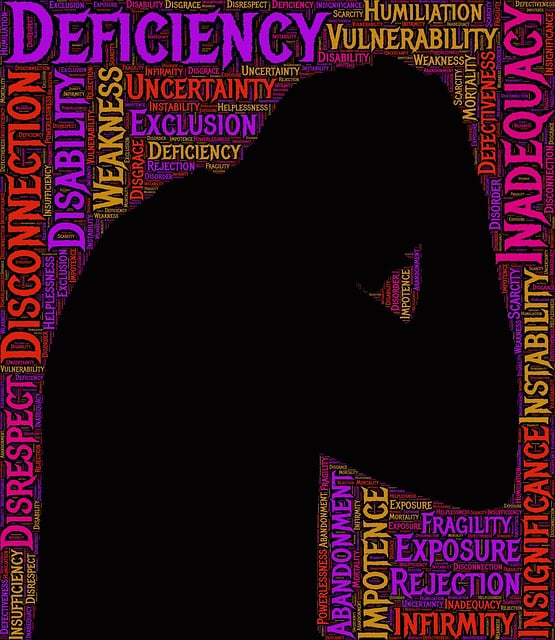Louisville Interpersonal Issues Therapy (LIIT) prioritizes comprehensive risk assessment, integrating evidence-based practices with client-centric interventions to mitigate risks and promote mental wellness. Through open dialogue, therapists uncover root causes of complex emotional, behavioral, and relational challenges. Collaboration between clients and therapists is central, with clients learning mindfulness, stress management, and empathy-focused strategies while therapists provide a safe space for expression. Regular progress reviews and dynamic harm minimization planning ensure adaptability, addressing evolving mental health needs for positive outcomes. LIIT's holistic approach fosters long-term wellness by empowering clients to overcome obstacles and embrace fulfilling lives.
In Louisville, risk assessment and harm minimization planning are cornerstone practices for ensuring safe therapy. This comprehensive guide explores critical aspects of these strategies within the context of Louisville Interpersonal Issues Therapy (LIIT). We delve into understanding risk assessment as a foundational step, identifying potential harms in interpersonal issues, developing effective minimization strategies to empower clients and therapists, and implementing plans that foster adaptability while monitoring continuous improvement.
- Understanding Risk Assessment: A Cornerstone of Safe Therapy Practices in Louisville
- Identifying Potential Harms: Navigating the Complexities of Interpersonal Issues
- Developing Effective Minimization Strategies: Empowering Clients and Therapists Alike
- Implementing and Monitoring Plans: Ensuring Continuity and Adaptability in Louisville Interpersonal Issues Therapy
Understanding Risk Assessment: A Cornerstone of Safe Therapy Practices in Louisville

In Louisville, understanding risk assessment is foundational to delivering safe and effective interpersonal issues therapy. It’s a process that goes beyond mere identification of potential hazards; it involves meticulously analyzing factors contributing to client risks, their capacity for coping, and the likelihood of harm. This comprehensive approach ensures mental health professionals in Louisville can develop tailored interventions aimed at minimizing risks and promoting mental wellness.
By integrating risk assessment into therapy practices, mental health professionals in Louisville are better equipped to offer evidence-based support. This not only enhances client safety but also fosters a deeper understanding of their unique challenges. Regular Mental Wellness Journaling Exercises, as encouraged by the Mental Health Awareness community, can complement this process by providing clients with tools to introspect, track progress, and actively participate in their therapy journey – further strengthening the collaborative effort toward harm minimization.
Identifying Potential Harms: Navigating the Complexities of Interpersonal Issues

Identifying potential harms is a critical step in risk assessment, especially when addressing interpersonal issues prevalent in Louisville Interpersonal Issues Therapy. These complexities often manifest as a web of emotional, behavioral, and relational challenges. Therapists must carefully navigate this intricate landscape to understand the root causes and impact of such issues on individuals and communities. By employing trauma support services and focusing on emotional regulation, professionals can begin to unravel these enmeshed problems.
Effective harm minimization planning leverages communication strategies as a powerful tool. Enhancing open dialogue enables therapists to gain valuable insights into clients’ lived experiences, fostering a collaborative environment. This approach ensures that interventions are tailored to address specific interpersonal challenges while promoting positive outcomes and enhancing overall well-being in Louisville Interpersonal Issues Therapy settings.
Developing Effective Minimization Strategies: Empowering Clients and Therapists Alike

Developing effective harm minimization strategies involves a collaborative effort between clients and therapists. By empowering both parties, Louisville Interpersonal Issues Therapy can significantly enhance treatment outcomes. Clients play a crucial role in identifying their triggers, understanding their emotional responses, and learning coping mechanisms like mindfulness meditation to manage stress. Therapists, on the other hand, contribute by teaching empathy-building strategies, fostering open communication, and providing a safe space for clients to explore and express their feelings.
This partnership not only strengthens the therapeutic bond but also equips clients with practical tools to navigate challenging situations. Through regular practice and support, clients can develop resilience, reduce the impact of interpersonal issues, and lead more fulfilling lives. By integrating stress management techniques and empathy-focused approaches, Louisville Interpersonal Issues Therapy offers a comprehensive framework for holistic healing and personal growth.
Implementing and Monitoring Plans: Ensuring Continuity and Adaptability in Louisville Interpersonal Issues Therapy

Implementing and monitoring harm minimization plans is a dynamic process integral to Louisville Interpersonal Issues Therapy (LIIT). Effective strategies involve tailoring interventions to individual needs, recognizing that mental wellness journeys are unique. By fostering self-awareness exercises within LIIT frameworks, therapists empower clients to navigate challenges with enhanced resilience building. Regular review of progress ensures the plan remains adaptable, addressing evolving interpersonal issues and promoting positive outcomes.
Continuous monitoring allows for timely adjustments, acknowledging that recovery is an ongoing process. This approach aligns with LIIT’s holistic vision, fostering not just symptom reduction but also long-term mental wellness. Through proactive engagement and flexibility, therapists can facilitate transformative experiences, enabling clients to overcome obstacles and embrace a more fulfilling life.
Risk assessment and harm minimization planning are integral components of delivering safe and effective Louisville Interpersonal Issues Therapy. By understanding potential risks, identifying harmful outcomes, and implementing strategic minimization strategies, therapists can empower both themselves and their clients to navigate complex interpersonal challenges. Continuous monitoring ensures that plans remain adaptable and relevant, fostering a supportive environment for healing in Louisville.











